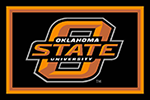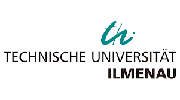1. Educational Objectives
The Mechanical Engineering (ME) BS Program at UB is accredited by ABET, which requires a formal Outcomes Assessment and Continuous Improvement process to ensure excellent educational quality. The Educationcal Objectives for the Advanced Program of the ME BS program at TNUT are:
- Knowledge
To prepare graduates fundamental, basic, specific and societal knowledges for a career or further studies in mechanical engineering or related disciplines, applying the concepts and principles of mathematics, science and engineering in industrial activities.
Understand the the knowledge about development, documentation and presentation of engineering projects, the economy and engineering economics
Understand the required knowledge to start a new career or research and caring about the social issues.
- skills
To provide graduates with the technical skills necessary to begin a career or advanced studies in mechanical engineering, the professional skills and societal awareness expected in modern engineering practice.
Ability to design mechanical components and mechanism, Material handling system, Flexible Manufacturing System
Ability to manufacture mechanical components and machines.
Ability to use fluently the professional software such as CAD/CAM/CNC to design, model and simulate the mechanical components, mechanism and machines
Ability to simulate and programming the manufacturing process to produce a mechanical product.
Ability to write a program by software such as C++ to control simple machines.
Ability to synthesis and analysis the data to create a new machine or application in daily life and industry.
Ability to read, listen, speak and write good English in profession.
Ability to work in group, study or work independently.
- Attitude
To produce graduates equipped with virtuous characters, committed to the responsibility of work and society.
Obey the job ethics to serve the people and community with highest integrity.
Job Opportunities
Mechanical engineers are involved in research and development, design, manufacturing and technical sales of the widest variety of products. Specific areas of involvement include computer-aided design and manufacturing; robotics; power plants; engines; machine tools; construction equipment; material; agricultural implement; automotive vehicles and systems of transportation; domestic and industrial appliances; control and measurement devides; instrumentation; biomedical devices;apparatus for the control of air, water, noise, refuse and other types of pollution; underwater technology; space flight equipment; safety devices and food processing machinery.
Student can elect to pursue graduate work in engineering or other fields.
Graduate study in mechanical engineering can lead to careers in research and teaching.
2. Program Learning Outcomes – PLO
PLO-01: An ability to apply knowledge of mathematics, science, engineering fundamentals and engineering specialization to the solution of complex engineering problems.
PLO-02: Problem Analysis: An ability to identify, formulate, research literature and analyze complex engineering problems reaching substantiated conclusions using first principles of mathematics, natural sciences and engineering sciences.
PLO-04: Investigation: An ability to investigate complex engineering problems in a methodical way including literature survey, design and conduct of experiments, analysis and interpretation of experimental data and synthesis of information to derive valid conclusions.
PLO-03: Design/Development of Solution: An ability to design solutions for complex engineering problems and design systems, components or processes that meet specified needs with appropriate consideration for public health and safety, cultural, societal, and environmental considerations.
PLO-05: Modern Tool Usage: An ability to create, select and apply appropriate techniques, resources and modern engineering and IT tools, including prediction and modeling to complex engineering activities, with an understanding of the limitations.
PLO0-6: The Engineer and Society: An ability to apply reasoning informed by contextual knowledge to assess societal, health, safety, legal and cultural issues and the consequent responsibilities relevant to professional engineering practice and solution to complex engineering problems.
PLO-07: Environment and Sustainability: An ability to understand the impact of professional engineering solutions in societal and environmental contexts and demonstrate knowledge of and need for sustainable development.
PLO-08: Ethics: Apply ethical principles and commit to professional ethics and responsibilities and norms of engineering practice.
PLO-09: Individual and Team Work: An ability to work effectively, as an individual or in a team, on multifaceted and /or multidisciplinary settings.
PLO-10: Communication: An ability to communicate effectively, orally as well as in writing, on complex engineering activities with the engineering community and with society at large, such as being able to comprehend and write effective reports and design documentation, make effective presentations, and give and receive clear instructions.
PLO-11: Project Management: Ability to demonstrate management skills and apply engineering principles to one’s own work, as a member and/or leader in a team, to manage projects in a multidisciplinary environment.
PLO-12: Life-Long Learning: An ability to recognize importance of, and pursue lifelong learning in the broader context of innovation and technological developments.
Brief outline of all courses in the program and Program specification can be found at the attachments




